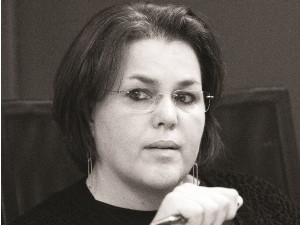
The core of what is now known as Enterprise Content Management (ECM) has been a part of organisations for the longest time. The idea that the information inside any organisation needs to be managed is a fundamental part of any productive entity, be it an army, a company or even a religious organisation. As long as people and things needed to be coordinated, there has been a requirement for systems.
The evolution of the modern organisation has made that requirement even more pressing as the fields of document management and workflow systems have converged into what is now seen as ECM and morphing into its next acronym iteration, Enterprise Information Management.
The drive for companies to engage in digital transformation is only putting more pressure on them to ensure that all the information collected by the organisation is properly managed so that it can be leveraged to deliver a competitive advantage.
The maturity of organisations on the ECM journey depends largely on the size and nature of the organisation concerned, says Monique Williams, Hyland Southern Africa regional manager.
"In South Africa, we have two groups: those companies with legacy systems such as the banks and the petrochemical companies, which generally allow those systems to continue to run the organisation as they always have. In the tier below these organisations, we have companies that tend to be technology leaders and where the adoption rate for ECM tends to be good. This has allowed companies to leapfrog from traditional document management right through to mobile solutions. At this point, improving business process and removing paper from the equation are pretty much a given and improving the customer experience is the key factor."
Marie Mulling, GM for productivity at Britehouse, adds that in dealing with some of the largest companies in South Africa, they have seen a massive uptake in adopting the latest technologies, especially in the area of mobility and cloud solutions.
"Even the banks and mines are moving toward cloud solutions, so we are seeing the large organisations - and their wheels turn slowly - but they are definitely starting to go that route.
"We have a client that is literally moving from a system that is still based on filling in paper forms to a completely mobile solution. That is the scale of the change we are seeing," she says.
The right context
Bennie Kotze, consulting manager: enterprise information management at Datacentrix, adds that while there are many private organisations that are making real moves in modernising their information management, the real problem remains the public sector.
"The real inability of the public sector is to understand that good information management is service delivery, it's not an addition to good service delivery. On local government level, you can literally turn a municipality around with good information management."
Unfortunately, the guy who owns the fileplan is the one who owns the cheque.
Marie Mulling, Britehouse
Frank Heitmuller, strategic account executive for enterprise at OpenText, says that ensuring that information is available in the right context is really the essence of good information management.
"It's all about having it available in the right time and the right place; you don't want it sitting somewhere where people have to go and find it. In specifically the pubic sector, there is still a concern about how to get information into a physical archive, even if it is generated electronically."
Do you manage information in the same way that you manage money and people?
Bennie Kotze, Datacentrix
Williams adds that in the public sector, the focus is still on records management and having a focus on this, rather than on content management more holistically. This attitude is what is holding back the public sector from reaping the benefits of ECM.
Mulling agrees, saying there is a fundamental difference in how the public sector approaches this from a return on investment perspective.

"The real return on investment from ECM comes from productivity increases, and I'm not that sure government wants to increase productivity or even if they know how to measure it. Governments want to focus on records management and the return on this is compliance, which is the wrong way to go about it."
Vanessa Miller,MD of VM Consulting,adds that government departments that focus on records management are making a big mistake because they are putting their departments at risk because they are not managing the life cycle of the content.
"The file plan and the records management are part of the archives management process and that should come at the end of the process. You should be getting the content from the source, from the time it happens, or else you are losing half of the content - half of the knowledge."
Mulling adds that in most cases, it comes down to budget, where departments allocate the funding to the records manager or the compliance office to sort out the mess that is the records.
"Unfortunately, the guy who owns the fileplan is the one who owns the cheque," she says.

"Business, on the other hand, has taken a different stance in that it is saying, 'As soon as you create information, let's get it into a system, let's automate it," says Miller.
Value of information
Heitmulleradds that this is being driven by digitisation.
"The idea that you are capturing a document in order to preserve it is becoming archaic. Now, you are trying to capture the information and taking it through the contextual flow of the process. And that is what organisations are starting to wake up to."
Kotze commentsthat the change in thinking is now coming down to the value that companies place on information.
"The question companies need to ask is, do you manage information in the same way that you manage money and people? People tend to be a lot more respectful around money and people than they are around information. Even with brilliant systems, people leave and take knowledge with them or delete vital information without thinking twice."
Neil Rom, MD of OKI/Printacom,says that much of this is the consequence of the culture.

"This requires a fundamental change in the way an organisation does things. The examples provided to us by many of the early adopters has proven that without proper planning, implementation will be a disaster."
This comes down to change management, but Mulling says that even though most proposals include a change management component, it's the first thing that gets cut when companies are looking to drive down the cost of an implementation.
"You may see companies paying lip service to change management, but once they understand what it actually entails, that it's not just putting up some posters, that it involves proper interaction and the creation of comprehensive content around the process, then they become less keen."
Miller comments that for ECM to be successful, it needs to interact with the people inside the organisation, as well as deliver a real business advantage.
Melanie Sutton, senior manager - Knowledge Capital Consulting at IQ Business,says she is seeing sectors that previously didn't see the value in information management systems, such as manufacturing, now starting to come on board.

"What is happening now is that the knowledge transfer problem is driving them towards information management systems. However, it's not the technology that should be the driver; it really should be the people."
The reremains a great degree of skepticism around the role that compliance has to play in pushing companies towards implementing ECM solutions.
Williams comments that all too often, the need for greater compliance creates a situation where the business needs proper ECM, but when it comes to the discussion around money, it is passed by in favour of an ERP system or something with a higher priority.
"The disservice that ECM is suffering through is that it is seen as a lesser priority than ERP, when this is not the case."
The rise of ECM as a market has put additional strain on the office automation vendors that have, for a long time, been eyeing the workflow and document management areas for themselves.

Yunus Docrat, professional service manager at Kyocera Document Solutions South Africa,says that traditional office automation suppliers have had to evolve in order to remain competitive.
"This is why we have embraced ECM because it complements the hardware services we offer."
Williamssays that the first time they partnered with an office automation vendor to take a complete solution to a client, the entire project failed, because it required a complete mindset change.
"Very often, office automation vendors are the first port of call when companies are looking to move beyond their existing solutions and into the ECM field. And to give credit to these companies, which are often out of their depth, they partner up with the right vendors and make the situation work for them."
Worlds collide
Rom adds that printer vendors have had to extend the functionality of their devices to allow them to integrate into the new digital systems.
Maurizio Bazan, print specialist at HP, agrees, saying the role of the multi-function device has changed in that it has become the front end for many ECM systems. In addition, he warns that companies are going out with a managed print services tender, but then building in document management and content management.

"This really doesn't work and the two elements need to be separated and not included in the same procurement process."
Williams adds that one of the interesting things that she has observed among local office automation vendors is that they are able to build integration into a variety of systems significantly faster than you would see in Europe or elsewhere.
The challenge of the quality of information is something that ECM vendors are all dealing with.
Mulling illustrates the point by saying that when she sits in front of a client, she asks if their ERP data is clean, and they all answer in the affirmative.
"This is never the case as you invariably come up with issues such as the client having five different ways of referring to the Gauteng province. That is just the tip of the iceberg."
Heitmullersays the different worlds ? ECM, office automation and other business applications - are colliding and you can't keep them apart anymore.

"Right now, we are talking about paper, but with some customers, we are looking at tying the content to a CRM or ERP transaction. In some places, we are looking how to tie digital communications together."
Even though companies still have silos and there isn't a single view of the customer, there is movement inside these organisations to improve the levels of customer service and digitise the experience that people have with their organisations.
Milleradds that this innovation is coming first from the smaller organisations rather than the larger ones, simply because they have to be more focused and need to be more agile in order to compete. Technology is the only way to do this.
"We are seeing that the South African industry is much more innovative than the developed world. The big financial services are getting on board and the manufacturing sector is pushing forward in order to be globally competitive," she concludes.
This article was first published in the April 2017 edition of ITWeb Brainstorm magazine. To read more, go to the Brainstorm website.
Share